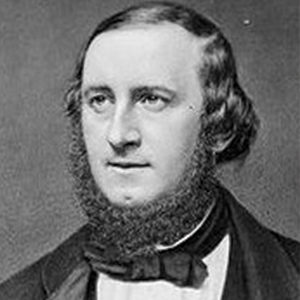 William Vincent Wallace (March 11, 1812 – October 12, 1865)
William Vincent Wallace (March 11, 1812 – October 12, 1865)
Transport developments during the Nineteenth Century allowed musicians to bring their talents and compositions to many corners of the globe. Nevertheless, not even the greatest of cultural superstars enjoyed the almost swashbuckling adventures of William Vincent Wallace. Although a number of his tales may have become embellished for the purposes of self-promotion, he certainly enjoyed a career as performer, composer, teacher and impresario that spanned three continents.
His musical education came directly from his father, a regimental bandmaster in modern-day Northern Ireland. In 1825 he married Isabella Kelly and settled in Dublin where he became a violinist at the Theatre Royal. The economic struggles of mid-19th Century Ireland saw the family migrate to Australia. In January 1836 he made his debut playing both a piano concerto and a violin concerto, and instantly became an active part of the musical community.
1838 saw him leave his wife (and, it appears, his debts) to travel once again. This time he crossed the Pacific and toured his musical talents around South America before settling (briefly) in New Orleans and then in New York City. By 1845 he was back in Europe, finally making his debut in London. Although some success followed, he struggled against the tough musical competition of the day, and turned his hand more towards composition. His opera “Maritana” was produced on Drury Lane and immediately proved popular. In 1854 he married again and became an American citizen. It was, however, during a further European tour of his operas that, in 1865, he fell ill with a heart condition and died in the south of France.
Musical Style and Influences
Contents [show]
His operas generally reflect elements of the 19th Century ‘bel canto’ syle, as well as flavors of the ballads and ‘parlour’ songs which were popular in England and America. Chorus movements from the operas also show that he was probably familiar with Verdi’s early style.
The solo instrumental music includes a good deal of virtuosity, and his numerous opera paraphrases and fantasies (for piano) show considerable influence of the great instrumentalist-composers of the day, such as Liszt, Paganini and Chopin. Swirling romantic melodies are presented with exciting, impressive flourishes and powerful harmonic developments.
What was William Vincent Wallace Known For?
The Music of William Vincent Wallace
Like most musicians, Wallace was required to concentrate most of his efforts on the promotion of his own playing and compositions. However, he is also fondly remembered for his work in developing the many musical communities through which he passed. He had only been in Australia a matter of months when he founded the nation’s very first music academy in Sydney.
Likewise, he was at the helm of the first national music festival (held at St Mary’s Cathedral, Sydney) in January of 1838. Throughout 1843 and 1844 he was associated with the early seasons of the New York Philharmonic Society, becoming an Honorary Member in 1853.
William Vincent Wallace Most Famous Works
His most famous works today are probably still the two operas which proved most successful during his lifetime: “Maritana” (1845) and “Lurline” (composed between 1847 and 1860). Although seldom produced as operas in recent decades, the overtures as well as selected arias are found on concert programmes and recordings today. Other operatic works include “Matilda” (1847), “The Amber Witch” (1861), “Love’s Triumph” (1862) and “The Desert Flower” (1863).
A good deal of his piano music remains popular, including his “Grand Fantaisie la Cracovienne” (1847) for piano and orchestra, and numerous solo works including romances, nocturnes, waltzes and studies. Perhaps most often still used today are his many songs for solo voice and piano. These include:
- It Is the Happy Summer Time
- The Gypsy Maid
- Softly, ye night winds
- Orange Flowers
- Go! Thou Restless Wind
- Cradle Song
- Good Night
- Pleasant Dreams
- he Leaves are Turning Red
